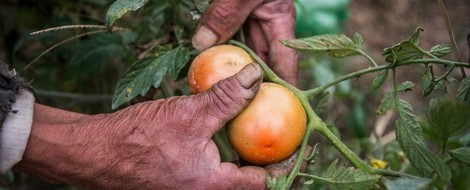Your podcast discovery platform
Curious minds select the most fascinating podcasts from around the world. Discover hand-piqd audio recommendations on your favorite topics.

piqer for: Climate and Environment
Pamela works as a Press & Communications Manager for an international NGO (IWGIA) defending indigenous peoples' rights. She holds an Erasmus Mundus MA in Journalism, Media & Globalisation from Hamburg and Aarhus University and an MA in Political Science from the University of Buenos Aires. She will be putting the eye on international media coverage of indigenous communities and their demands.
New Conservation Models Will Be Based On Indigenous Knowledge
Meanwhile the United States keeps the world waiting for their decision to back off or not from the Paris Agreement, animals seem to be the only fast movers in reaction to climate change.
Irreversible changes are happening now to our planet, and you need a geographer to boil the facts down.
According to Tero Mustonen, climate change is misunderstood as being simply a change in weather conditions. Even though it is evident that global temperatures are rising (on land and sea), another vital factor is at play, which will affect us all: the migration of wild animals and plants. Southern species are moving north, creating a migration pattern not seen in 25,000 years.
What does this mean for us humans? The imminent change of fauna in our immediate surroundings will have an enormous impact on our health, the way we eat and even economic development. All effects of climate change that are not being addressed by current global efforts.
Reinventing the wheel vs acknowledging indigenous contribution
For Mustonen, the line to take is clear: climate actions should be based on community-led research and adaptation projects that combine traditional indigenous knowledge with Western science.
"What we can do in this new world, is a rediscovery of the relations that indigenous communities and cultures still have with nature. They may be one of our best chances of survival. At first, it may be a philosophical question, but it’s becoming a very practical question, quite fast, in terms of looking at what’s going on globally today".
Along with many other researchers, Mustonen points to understanding climate change as a crisis of losing connection with nature; a value that indigenous communities around the globe sustain as the basis of their survival.
All relevant arguments to fuel constructive discussions on climate change in this 6-minute read and, if you are thirsty for more get the nitty-gritty details, in this article in Science.
